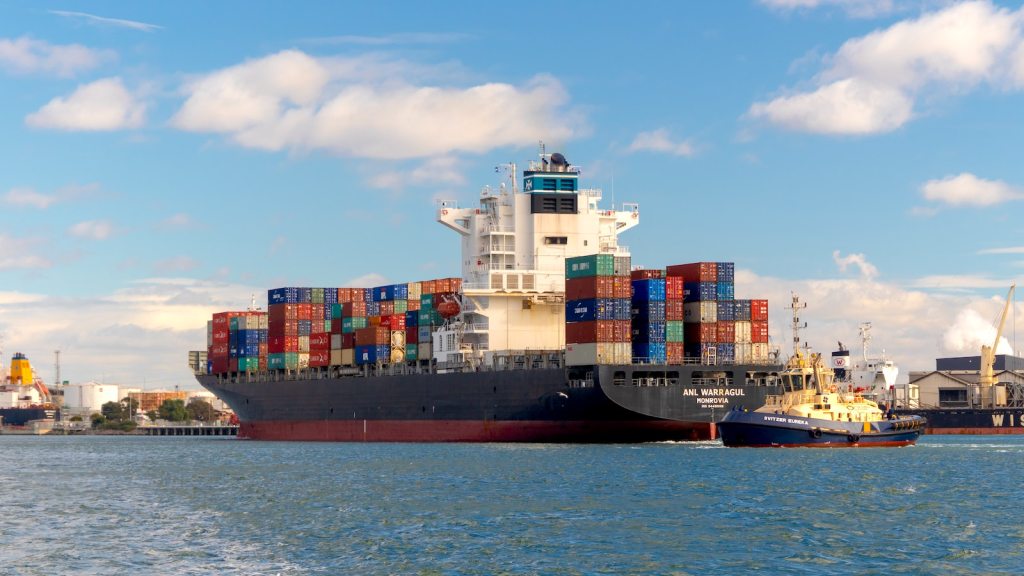Table of Contents
** Minutes
How does commercial shipping work?
Commercial shipping carriers & rates
Best practices for commercial shipping
Regardless if you’re shipping domestically or internationally, shipping cost is always on top of mind for ecommerce businesses.
Balancing speed and cost to meet customer expectations can seem like a moving target, so if you’re constantly searching for the best shipping options, you’re not alone!
Fortunately, if you’re shipping to businesses, you have an advantage of saving on shipping costs since quantities are often in bulk and speed isn’t usually the top factor.
If some or all of your customers are businesses, one solution is to opt for commercial shipping.
This article gives you a closer look at commercial shipping, how it works, and some best practices.
What is commercial shipping?
Commercial shipping, also referred to as “business shipping,” is the process of transporting goods for B2B ecommerce orders to one or more retailers. Commercial shipping also offers cheaper rates than residential shipping since it’s a less complex process for carriers.
How does commercial shipping work?
Commercial shipping is an ecommerce shipping solution used to send goods to businesses and often involves larger, bulk shipments (including heavy items) at a discounted rate.
A business will send out large volumes of items in a single shipment to keep shipping costs lower per item, which makes it a more eco-friendly shipping method than shipping single units at once like most residential shipping.
Most commercial shipping involve freight shipping, where goods are loaded into large containers and shipped using one or more modes of transportation.
As such, commercial shipping may be carried out through air, land, or sea, and a single commercial shipment may be fulfilled through multiple transportation methods.
Commercial shipping carriers & rates
With goods often shipped in bulk, commercial shipping tends to have lower rates. In fact, leading carriers typically offer commercial or bulk shipping discounts.
However, you’ll need to consider factors like carrier, billable weight, delivery destination, package weight, and delivery times when calculating actual shipping costs.
Here’s a look at some of the typical rates with carriers like USPS, UPS, and FedEx.
| Speed | UPS | FedEx | USPS |
| 1-2 days | $53.05 | $60.25 | $34.35 |
| 3-5 days | $49.15 | $44.25 | $16.10 |
| 5-7 days | $17.13 | $17.40 | $10.45 |
Note: These prices were pulled from each carrier’s website in April 2022 and reflect the average price of a shipment weighing 2 lb and being shipped from AZ to AR in the United States. These rates are not reflective of ShipBob’s shipping rates. To request a B2B and B2C fulfillment quote from ShipBob, click here.
Best practices for commercial shipping
To get the most out of commercial shipping, it’s important to follow a few best practices to get the best rates and improve supply chain efficiency. Here are some best practices for commercial shipping.
Compare carriers to get the best rate
Different shipping carriers have different prices depending on factors like mail type, package weight and dimensions, and delivery destination.
Even just a $1-$2 cost difference can make a huge difference in the long run when it comes to the large shipments involved in commercial shipping.
If possible, find a carrier that can provide flat-rate shipping so you can accurately calculate your shipping costs ahead of time. Predictable shipping fees are particularly useful if you plan on offering free ecommerce shipping.
Reduce shipping costs
As you grow and form new business and commercial partnerships, if you’re dealing with a large volume of orders it’s important to constantly look for opportunities to reduce shipping costs.
To do so, be sure to use optimal package dimensions and lightweight (but sturdy) packing materials.
To further reduce shipping costs, you might want to consider distributing inventory strategically across locations to store your inventory closer to your business customers. This not only reduces costs but also offers faster receiving timelines.
Avoid packaging mistakes
Packing process mistakes can add up to cost your business, so paying attention to packing processes is essential.
Make sure you’re using boxes that fit the item properly so you can keep shipping costs low while ensuring that products are protected in transit.
Partner with a 3PL
The easiest way to follow all of these best practices is by leaving shipping and fulfillment operations to the experts. For example, ShipBob simplifies the commercial shipping process by fulfilling B2B (and B2C)orders and ships them through the fastest and most affordable route and carrier.
ShipBob’s omnichannel fulfillment solution includes a B2B Fulfillment Suite with EDI capabilities, which makes it easy to ship commercial B2B orders to your retail partners all from a single dashboard.
Additionally, ShipBob offers discounted shipping rates as the 3PL negotiates bulk discounts through leading carriers for B2B and B2C orders, both domestically and internationally.
“While we initially used ShipBob exclusively for our retail fulfillment, we quickly outsourced DTC fulfillment to them as well once we experienced how easy and effective it was.
ShipBob’s omnifulfillment solution could handle every sort of order we had, including retail, DTC, and B2B, and had no qualms whatsoever about facilitating our FBA prep orders for Amazon.
Multichannel fulfillment with ShipBob is affordable, too, as not having to do any shipping ourselves enables us to keep low overhead, and ShipBob’s transparent pricing across channels provides even more cost-savings.”
Nathan Garrison, Co-Founder and CEO of Sharkbanz
How ShipBob can simplify and improve ecommerce shipping
With a distributed omnichannel fulfillment network and best-in-class technology, ShipBob can execute your fulfillment strategy for both B2B and B2C orders. ShipBob’s powerful shipping technology makes it easier to auto-select the best carrier for each order.
For B2B orders, ShipBob’s user-friendly dashboard makes it easy to create B2B wholesale orders and ship them to your commercial retail partners from a single dashboard.
Ready to expand your sales channels and sell across retailers?
ShipBob can help you establish a multichannel retailing strategy and provide full visibility into the fulfillment process.
Request a fulfillment quote below.
Commercial shipping FAQs
Here are the answers to the top questions about commercial shipping.
What is the cheapest way to ship for a small business?
USPS typically offers the cheapest shipping option for small businesses, especially if you take advantage of their volume discounts. It’s recommended to get pricing from each carrier since rates can vary and be subject to many variables.



